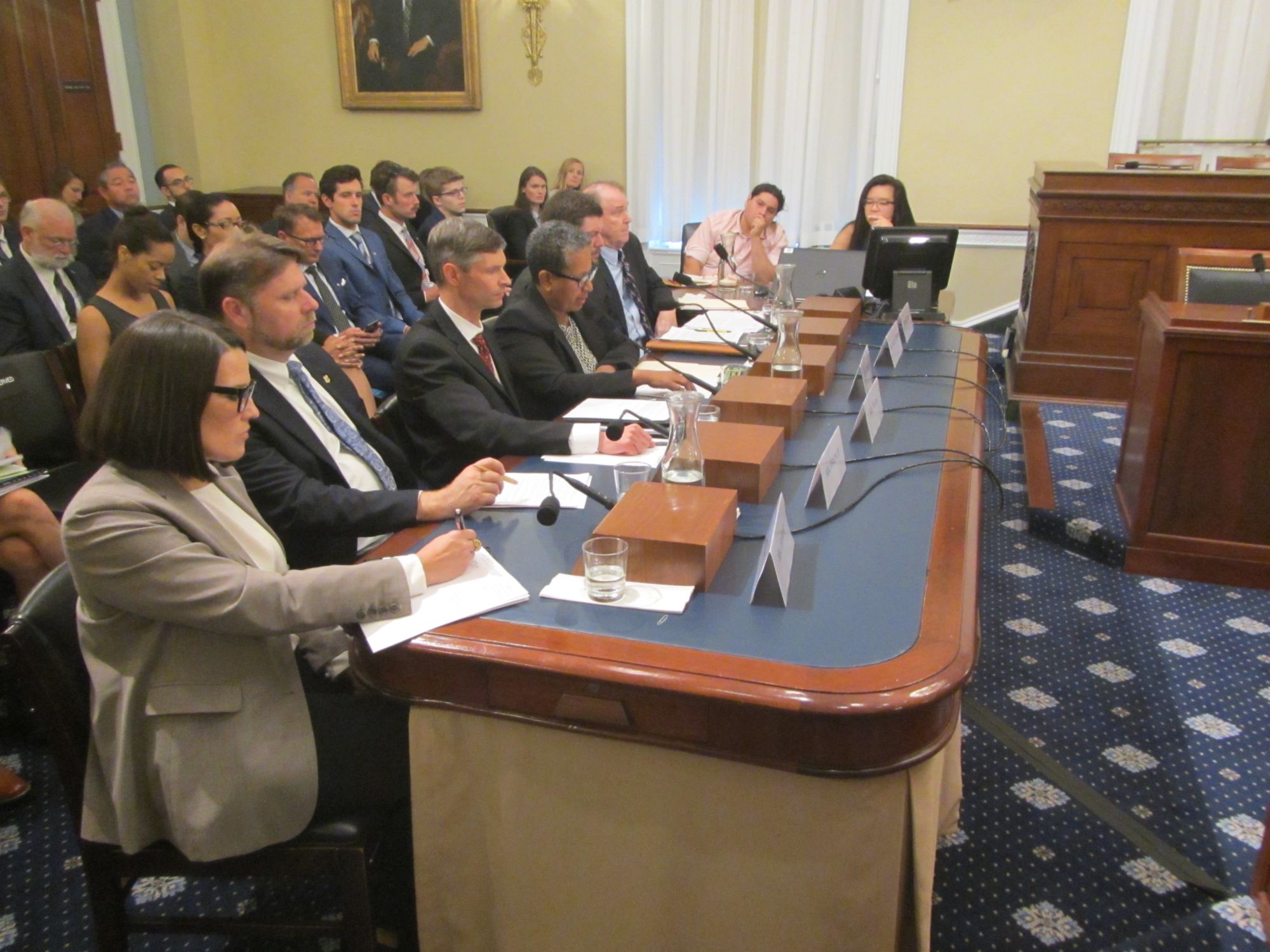House Subcommittee Hearing on the SOAR Act

On Sept. 19, 2019, the Simplifying Outdoor Access for Recreation (SOAR Act), H.R. 3879, and the Recreation Not Red Tape Act, H.R. 3458, were the subject of a legislative hearing in the National Parks, Forests and Public Lands Subcommittee of the House Natural Resources Committee. Six witnesses provided testimony on the bills. A brief recap of each witness’s testimony follows below.
Leah Baker, Acting Assistant Director for Resources and Planning at the Bureau of Land Management, confirmed that the BLM’s goals aligned with that of the two proposed acts. She pointed out that the BLM had recently acquired thousands of acres in New Mexico and Montana in an effort to improve access to the wilderness in those areas and she noted the large number of outfitter-guide permits currently managed by the BLM. She went on to describe several provisions in the SOAR Act that would help the BLM simplify the permit process to improve access to public lands and she noted several areas in which the BLM would like to work with committee staff to ensure the bill achieves the intended outcomes.
Chris French, Deputy Chief of the U.S. Forest Service, shared his personal connection to the outdoors, demonstrated by thirty years working for the Forest Service, and his passion for facilitating connections between Americans and forest lands. He affirmed that the U.S. Forest Service supports the goals of the two acts, namely, improving recreational access to national forest lands by refining and streamlining the special use permitting process. Like Ms. Baker, he noted a few areas in which the agency would like to discuss the details of the bill with committee staff to ensure its intent is achieved.
Matt Wade, Advocacy and Policy Director for the American Mountain Guides Association (AMGA), explained his organization’s proximity to public lands, stating that AMGA had trained over 13,000 mountain guides who rely on public lands to execute their work, in addition to providing highly popular training courses for veterans to prepare them for a career in the mountain guiding industry. He commented that the agencies’ antiquated and inefficient administrative systems have stunted the growth and quality of AMGA’s scope and depth of work. He further clarified that SOAR improves access to existing capacity already deemed fit for outfitting and guiding usage, instead of making changes to capacity determinations or user group allocations.
Robin Chiles, Director of Admissions and Outreach of YMCA of Greater Seattle BOLD & GOLD Programs, stated that 800 guided youth are able to explore the outdoors of the Pacific Northwest through BOLD & GOLD Programs. One of her students, twelve-year-old Peter, exuded a newfound commitment to a healthier lifestyle and an increased sense of self confidence after partaking in a trip. Ms. Chiles indicated that the complex and excessively time-consuming nature of the permitting process has crippled YMCA’s ability to meet a growing demand for more trips, which she says transform lives, inspire career paths, and increase awareness of environmental stewardship.
Matt Baker-White, Acting Director of Cottonwood Gulch Expeditions, illustrated the importance of his 93 year old wilderness education nonprofit by sharing a story of a particular middle schooler who saw stars for his first time on a New Mexico cultural expedition, having never gone outside after dark due to a lack of safety in his residential area. Mr. Baker-White indicated that the passage of the acts would redirect their employee time from unnecessarily long and repetitive permit applications to more extensive programming for the youth they serve.
David Brown, Senior Consultant for the America Outdoors Association, expressed the significant need to reauthorize and improve the authority to issue outfitting guide permits for the represented agencies, which sunsets the first of October 2020. He noted that the members of AOA, composed of outfitters and guides operating on federal lands and water, are burdened by the permitting processes that exceed the capacity of the permitting agencies and stifle access to public lands. Mr. Brown concluded by outlining the three primary results should the two acts pass: improved access to public lands while maintaining environmental protection; improved permitting systems that reduce administrative costs; and simplified permit fee calculation and cost recovery reform.
The Coalition for Outdoor Access (COA) also submitted written testimony for the hearing. The testimony states that the complexities of the permitting process are limiting public access and preventing a broad range of outdoor leaders and local businesses from providing people with outdoor experiences on public lands — hence legislation is needed to direct federal land management agencies to review their permitting processes and identify areas for simplification and improvement. In its testimony, COA specified that an overall goal with this legislation is a carefully calibrated simplification of the permitting processes that ensures the agencies retain the discretion they need to craft the most effective solutions for the unique attributes of the landscapes they are charged with stewarding.
With this latest hearing in the books, the bi-partisan legislation outlined in the SOAR Act is one step closer to moving through committee and into law.
Article courtesy of Backbone Media
Recent Posts

Benefits of Facilitated Recreation

Reimagine Recreation: We need your support and input!

COA Submits Comments on NPS On-Line Permit Application System

SOAR Act Among Bills Likely to Receive Congressional Action this Fall

2023 Outlook for the SOAR Act

Proposed National Park Service Online Portal Will Modernize Commercial Use Authorization Applications and Reporting

COA Submits Comments on Forest Service Cost Recovery Rule

The SOAR Act: Reimaging our Federal Permitting Processes

AORA Passes Senate Committee
